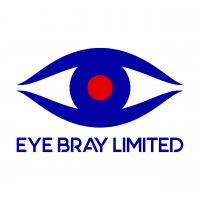Whether Compliance is a friend or foe really depends on your attitude. To me it’s a friend as it isn’t just about the legality of things, it is about effectiveness and efficiency in the organisation. It’s true, honestly.
I know that compliance is a hated word. I know the viewpoint that its all about doing a tick box exercise. That’s short sighted as it enables organisations to do, and understand, so much more.
Whether we like it, or not, there are certain things we have to do. Pay taxes, abide by laws and regulations, treat employees appropriately and fairly. But this is only half the story.
The other half is looking deeper into how you do things so that you can look more attractive to those that need your goods, or services.
Commonly business owners and organisations are asked to consider using the 5 “W’s” and the “H” to decide whether what is done in their organisation is appropriate. What works for a multinational, won’t be appropriate for a sole trader.
But using the same tools will bring about the same result – the right way for them. This is the hardest bit to grasp. By that I mean that the nuances found at the lower levels of the business spectrum to the broad standardisation available to the largest enterprises.
Let’s substitute Certification for Compliance for a minute. Does that change things? This is where compliance takes you. To be able to apply for certifications and accreditations from recognised bodies. This is true for an organisation no matter what its size. These certifications, once gained, can be added to your website and other stationary to add appeal to your prospective clients.
Certifications happen at all levels of business and has an immediate impact on that business, where certification hasn’t been sought before. The business has to record everything that it does relevant to that certification and retain any evidence related to the actions it has taken.
The side effect of this is that the organisation gets to understand it obligations in a different way and often results in significant changes. These changes will not be anything to do with the reason it is in business, nor about the products, and/or services, it provides. It will concentrate on the “H” – the HOW.
The 5 W’s (Who, What, When, Where and Why) actually come from strategy and policy and it should drive how your organisation, or business, is structured. The How is then where an organisation, or business, pieces together all that it needs to do to prove the strategy and policies are practical and workable.
The 5 “W’s” and the “H” should also match the ethos of the organisation, or business. Efficiency concerns will concentrate both on the speed and accuracy of the delivery of your products. Just concentrating on speed will drive up errors, while too much emphasis on controls will slow down processes too much.
This then is the conundrum that so many organisations and businesses face. How do I make myself more attractive to those I want to attract as clients? Making yourself more attractive gives you the best opportunity to grow, but how much will you have to, or should you, change in order to reach that goal.
The answer is that it is never ending and cyclical. A successful period of growth will lead to a review of business operations. In the same way as it was recognised before, growth requires change. To gain a higher level accreditation, for example an ISO certification rather than a BS certification, will require refinement of recording what you do and how you do it. The good news is that each one will be easier than the last as many of the evidences required will be in place already.
It has to be said, at this point too, that some change is statutory and not related to certification at all. These changes can still require you to re-evaluate elements your policies and processes so touch on both the 5 “W’s” and the “H”. Maintaining high levels of conformity to local laws is normally a key attribute of retaining any certification, or accreditation, you have gained.
.
It really is up to you to decide, but if you do decide foe than I would suggest that your ability to grow would be at least stunted. Failure to abide by regulatory frameworks can also carry personal penalties to senior managers and directors so it really is in their best interests to understand what their obligations are.
We are also our own worst enemy here. We see these frameworks as being things that should be done rather than must be done. What will it take for you to take action? Many companies have had damaging articles posted about them on regulators website and their business has been affected by the publication of their actions. They have then been forced to take action.
What is the true cost of such things, it is not easy to tell. Although there have been some organisations that have closed following such a revelation. Will you lose your business because you don’t want to complete a “box ticking exercise”, or will you take action before someone in authority catches up with you?
Based on my previous blogs, this one is quite light on detail. Please look through the other blogs and see if the information you want is provided. Some of what I provide is very detailed.
We would be pleased to answer your enquiry through enquiries@eyebray.com, by calling 0743211611, or why not try https://wa.me/447943211611 .

Registered Address:
55 Crown St, Brentwood. CM14 4BD
Tel: 020 3026 5600
Mob: 07943 211611
Monday:
Tuesday:
Wednesday:
Thursday:
Friday:
Saturday:
Sunday:
8 am – 6 pm.
8 am – 6 pm.
8 am – 6 pm.
8 am – 6 pm.
8 am – 6 pm.
Closed
Closed